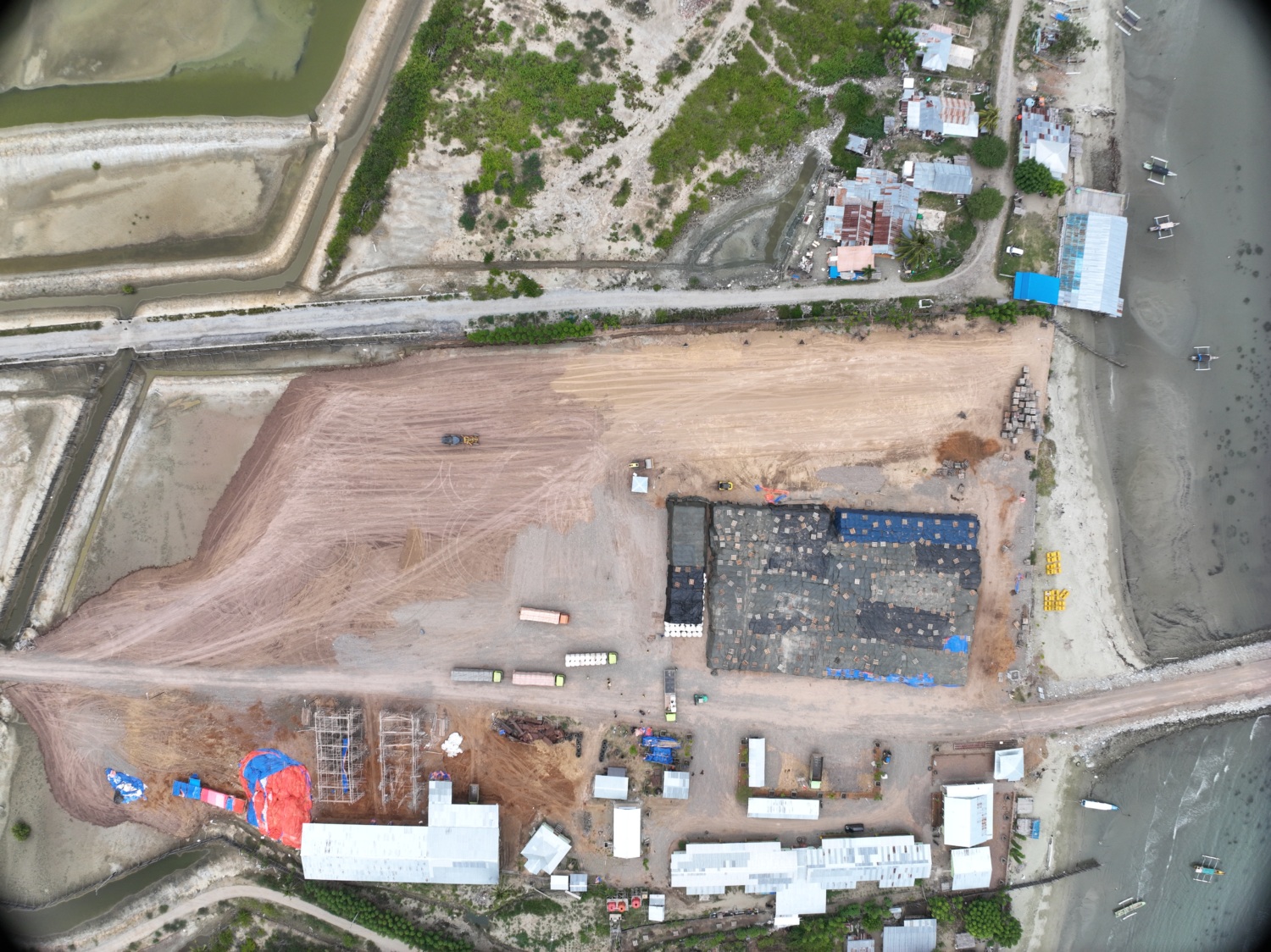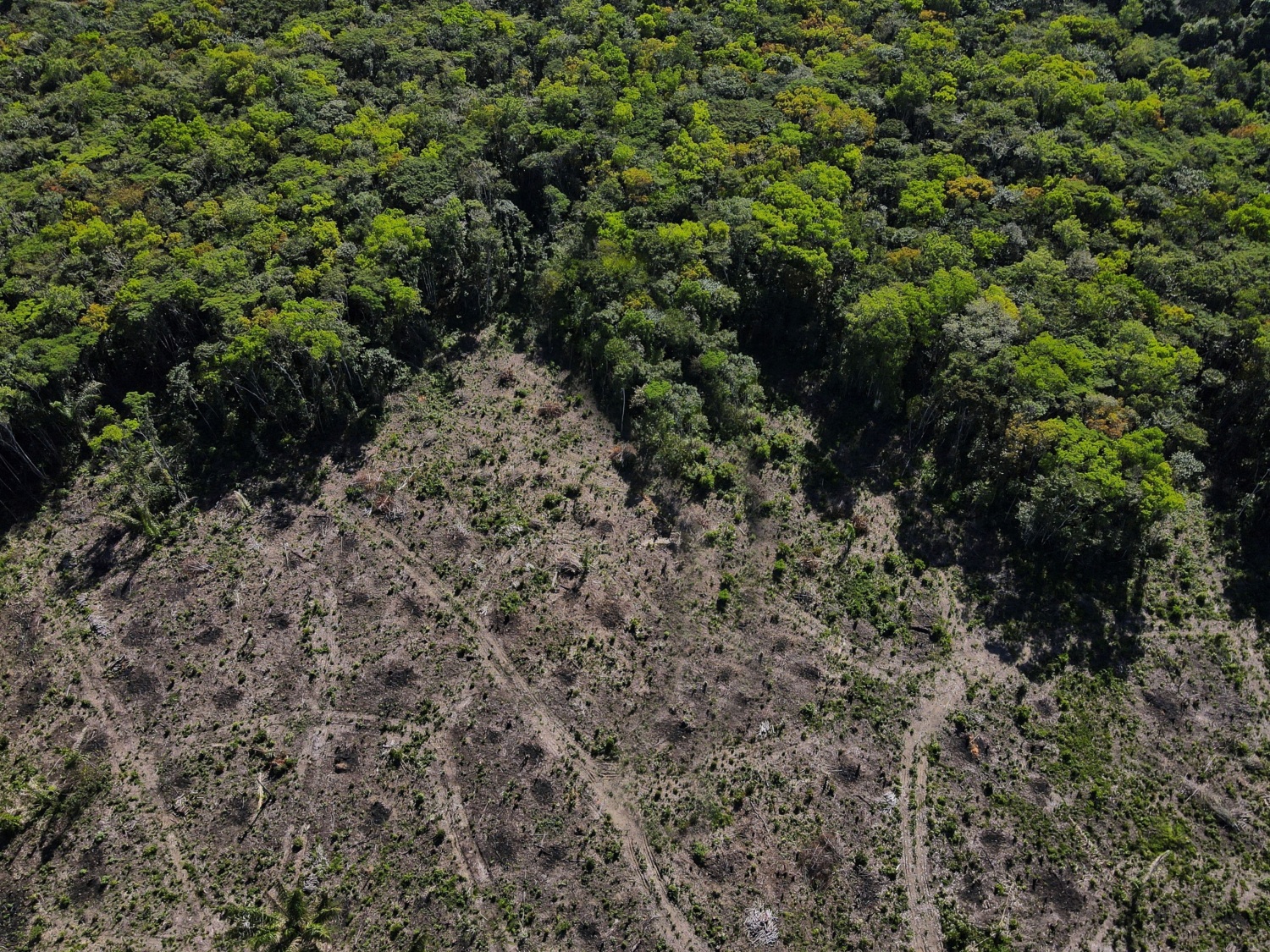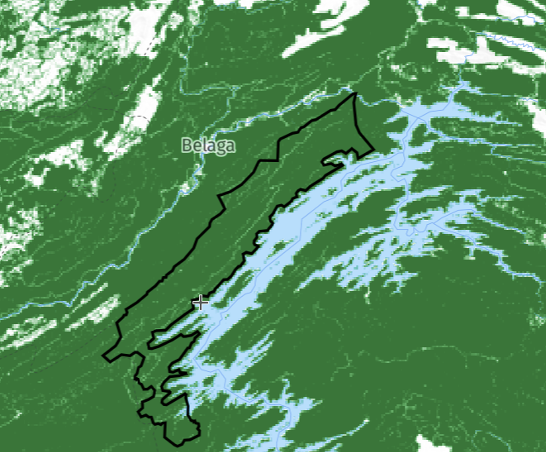
Rush to Burn Wood for Energy Threatens Forests & Communities
Indonesian, Japanese and South Korean policies and subsidies are supporting a false climate solution which could drive massive deforestation and forest degradation, reveals new research released at ASEAN Summit
Jakarta, October 10, 2024 – New maps and analysis show more than 10 million hectares of intact tropical forests in Indonesia – equivalent to over eight million FIFA football pitches – are threatened by the growth of the false climate solution of burning wood for energy.
Launched during the Summit of Southeast Nations (ASEAN), the report, Unheeded Warnings: Forest Biomass Threats to Tropical Forests in Indonesia and Southeast Asia, co-published by Earth Insight, Auriga Nusantara, Forest Watch Indonesia, Trend Asia, Solutions for Our Climate, and Mighty Earth documents the menace to tropical forests from the demand for wood pellets and chips by wood-to-energy plants, particularly in Japan, South Korea, and Indonesia.
Key Findings
More than 10 million hectares of intact tropical forests are at-risk within wood chip and co-firing plant haul zones; inclusive of more than 127 Key Biodiversity Areas spanning over 4 million hectares
Of more than 1.2 million hectares of forest within energy plantations, 400,000 hectares are undisturbed forest cover; inclusive of over 14 Key Biodiversity Areas that are at-risk
More than 3.9 million hectares of undisturbed forest cover are within the haul zones of co-firing plants, with more than 1.5 million hectares in 104 Key Biodiversity Areas at-risk
More than 4.1 million hectares of orangutan habitat are within the haul zones of chip mills and co-firing plants
Field investigations document massive forest impacts where forests once stood near a wood pellet plant and show more than a thousand hectares of primary forest were cleared last year for wood pellet exports to South Korea and Japan In Gorontalo; community opposition is emerging here and elsewhere
Wood Energy Goals Threaten Tropical Forests
A letter signed by more than 500 scientists and economists in 2021 warned that the European Commission’s mandate to increase renewable energy by 20% would “create a model that encourages tropical countries to cut more of their forests.”
Three years later, their prediction is unfolding across Southeast Asia. In particular, their dire warning is illustrated by threats to Indonesia’s forests from co-firing plants, energy plantation forest concessions, and wood chip and pellet mill haul zones.
Under Indonesia’s energy transition plans, woody biomass will generate 19.7 TWh by 2025, the majority (64.5%) of which will come from co-firing in coal plants. Forests designated as ‘energy plantations’ are expected to supply half of what is needed. The country’s forests face unprecedented threats from the industrial scale projected for biomass demand.
Co-publisher Trend Asia estimates that meeting Indonesia’s co-firing mandate could require 10.23 million tonnes of wood pellets a year supplied by forests the size of 3.27 million football fields. It would accelerate deforestation as high as 2.1 million hectares a year.
Wood pellet demand in South Korea and Japan is spurring a fast-growing forest energy industry in Indonesia. Analysis by co-publisher Auriga Nusantara shows the two countries combined bought more than 99% of Indonesia’s wood pellet exports.
Subsidy programs in South Korea and Japan have radically expanded demand and production of wood pellets and chips from forests across Southeast Asia. An analysis of wood pellet imports found a direct causal relationship between Southeast Asian wood pellet production and South Korea’s renewable energy policy.” From 2012 to 2021, Vietnam’s total wood pellet production grew from 50 thousand tonnes to 3.5 million tonnes; Malaysia’s production jumped from 40 thousand tonnes to 710.0 thousand tonnes, while Indonesia’s production increased from 20 thousand tonnes to 330 thousand tonnes. Additional power plant capacity is expected to make Japan the largest wood pellet consumer in the world.
Carbon accounting loopholes drive wood energy demand
Historically, UNFCCC and IPCC carbon accounting excludes forest biomass from the energy sector, along with emissions from the destruction of long-established forests.
Wood energy will increase CO2 levels in the short run and could trigger irreversible climate impacts. Biomass power plants emit 50% – 60% more CO2 per megawatt-hour than modern coal plants. Burning wood with coal further increases carbon emissions – and would require significant amounts of wood for most coal plants.
“Carbon debt payback time” is how long it takes regrowth to remove carbon emissions after wood is burned for energy. If wood displaces coal, the carbon debt payback time is estimated between 40 and 115 years. Payback estimates for tropical forests range from 30–120 years for non-peat soils, and more than 900 years for forests growing on peatlands in Southeast Asia.
Quotes
Timer Manurung, Executive Director, Auriga Nusantara
“Burning biomass is clearly a false energy solution. Deforestation for new plantations and exports poses a double jeopardy for Indonesia. Japan and South Korea are driving the market for biomass plantation expansion. At the same time, the government’s co-firing policy could increase woody biomass consumption up to 8,400%, which poses a huge threat to remaining forests and local communities. Our climate and critical forests must be safeguarded from false climate solutions. There is an urgent need to stop the rush to burn forests for energy and invest in protecting and restoring nature for our shared future.”
Agung Ady Setiyawan, Economic and Human Resources Development Manager, Forest Watch Indonesia
“Our field investigations show Gorontalo is Ground Zero for an export wood pellet industry that is clearing intact forests and harvesting full logs. It is expected to grow exponentially as industry players go into new concessions, such as in North Kalimantan.”
Amalya Oktaviani, Bioenergi Campaign Manager, Trend Asia Trend Asia
“The biomass development practices observed so far have resulted in deforestation, the displacement of indigenous communities, food crisis, and biodiversity loss. Indonesia must shift away from energy sources that depend on land-intensive industries and combustion methods, and instead embrace energy sources that are truly renewable, sustainable, and equitable.”
Tyson Miller, Executive Director, Earth Insight
“Decision-makers in Southeast Asia have a critical opportunity to listen to the warnings of hundreds of scientists and learn from the mistakes of other countries that have erroneously looked to and subsidized burning wood for energy. Going down this path will not only increase greenhouse gas emissions, but it will undercut the ability for nature based solutions to be effective, and take subsidies away from real climate solutions such as wind, solar, tidal, efficiency, and other key pathways.”
Hansae Song, Forests & Land Use Program Lead, Solutions for Our Climate
“South Korea’s distorted energy policy excessively incentivizes biomass by paying power plants 59 USD per ton of CO2 for emitting–not reducing–carbon dioxide. It is not South Korea but producer countries like Indonesia that carry the burden of these emissions, an act of climate injustice committed on a national scale. The South Korean government must acknowledge its impacts on the forests, climate, and society and eliminate all renewable credits given to industrial-scale biomass.”
Sayoko Iinuma, Global Environmental Forum
“Japan is now becoming a major player in the global biomass power generation market, with imports of 5.3 million tons of wood pellets in 2023.The Earth Insight report has revealed the relationship between the logging of Indonesia’s tropical forests and biomass power generation in Japan and South Korea, which has not been a focus of attention despite concerns to date.
It presents a serious and significant fact about the false approach and the wrong subsidies to address climate change, which is to generate “renewable” electricity by logging forests.”
Amanda Hurowitz, Senior Director, Forest Commodities, Mighty Earth
“Japan’s insatiable demand for wood pellets for its biomass program is driving the destruction of Southeast Asia’s forests at a time when, more than ever, we need standing forests to mitigate global heating and nature loss. The Japanese government is betting big on biomass and sees it as a means of achieving its commitment to carbon neutrality by 2050, but this strategy is riddled with flaws. Biomass is not carbon neutral, it’s a carbon nightmare, emitting more emissions than coal. For Japan to realize its climate goals and protect Southeast Asian forests, it needs to stop subsidizing this dead-end technology and invest, instead, in truly scalable and sustainable forms of renewable energy.”


